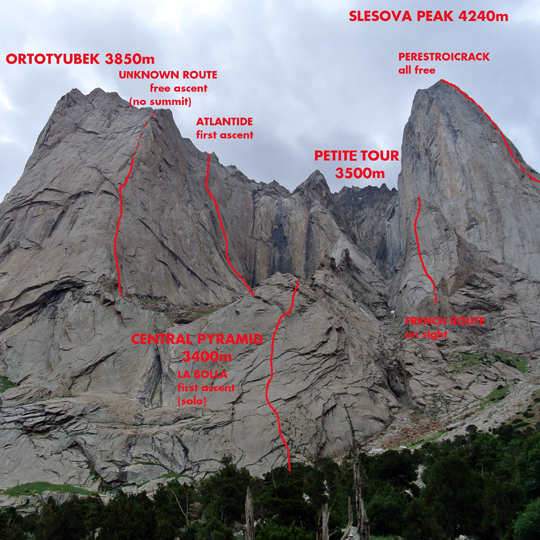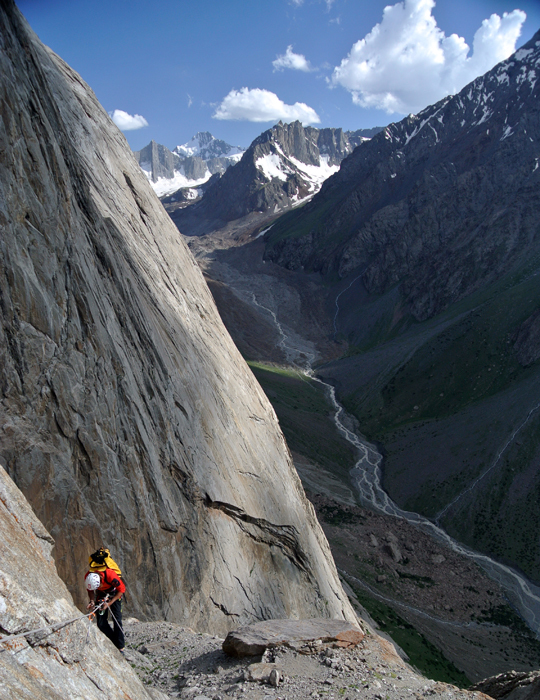
In Kyrgyzstan’s remote Ak-Su valley, a history of underreporting has left route information scarce. It “must be gathered from the notes and recollections of numerous individuals,” Alex Lowe explained in the 1996 American Alpine Journal. Still, young Italian alpinists Luca Schiera and Matteo De Zaiacomo learned enough about the region’s splitter granite graced by relatively mild weather to be lured to the Ak-Su this June and July. They climbed what may be the first and only route on the south face of the Central Pyramid (3895m) and repeated several routes on 3000- and 4000-meter peaks with difficulties up to 5.12b. Schiera added a new route, solo, to the buttress beneath the Pyramid.
The Ak-Su, “where Russians get their ya-yas,” reads the 1999 American Alpine Journal, was first reconnoitered in 1982 by a Soviet party that was immediately overwhelmed with the area’s sheer walls. The region’s word-of-mouth tradition has made a complete record of climbs in the area “difficult to compile,” Lowe wrote in the 1996 AAJ. The valley’s walls are still regarded for “the quality of their rock and their sheer and massive shapes, [resembling] their granitic cousins in Patagonia, Pakistan and Alaska, yet with much less severe weather,” Mark Bebie and Tom Hargis’s reported in the 1992 AAJ.
The Italians learned of the region from an article in an American climbing magazine. They arrived to find “beautiful” weather in the “green valley basin and some old cypress trees providing an excellent base for our tents,” Schiera explained on the Gruppo Ragni di Lecco’s blog.
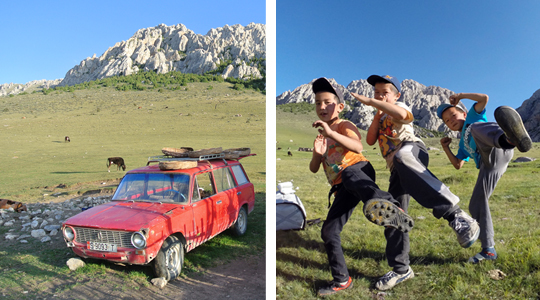
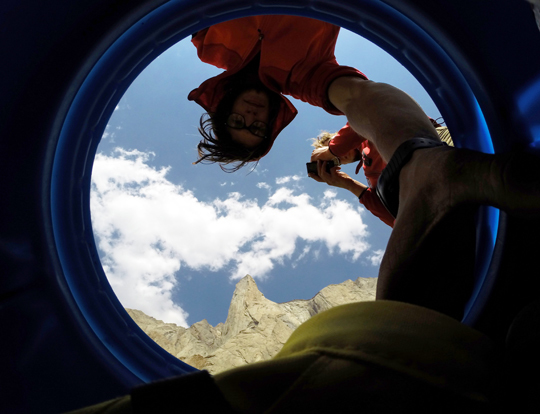
The two set out from their base camp on June 26 at 4:30 a.m., aiming for the south face of Central Pyramid. “The crack was beautiful but wider than we had thought,” Schiera wrote. “After 100m it petered out and so we continued up via a corner.” With clouds tumbling in as they approached the summit, the climbers rushed toward the Pyramid’s ridge. “All around us we hear the roar of the thunder, and I am the lightning rod….” But Schiera reasoned, “When in doubt, accelerate….”
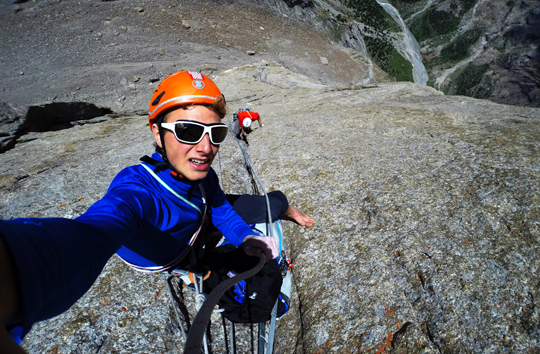

Weathering the storm, summiting and descending, the pair returned to their base camp after 22 hours non-stop. They placed only one piton on the climb and dubbed their 700-meter route Atlantide, grading it 5.11d. Along the way, they spied a likely looking line along the Pyramid’s southwest arete.
Seeking unclimbed rock, Schiera and De Zaiacomo set off on July 7 up the weathered arete. “The route was really beautiful, but we were shocked by the fact that it had been climbed without showing any respect to the rock; many bolts had been placed (and subsequently removed) as had bat-hooks,” Schiera wrote. Shaken but not defeated, they continued on the contrived line, only to be stymied by a smooth section, once featuring bolts long since removed. They returned two days later to traverse the featureless section, stumbling upon a route book “soaking wet and written in Russian,” Schiera writes. “[W]e had a hard time deciphering it.”
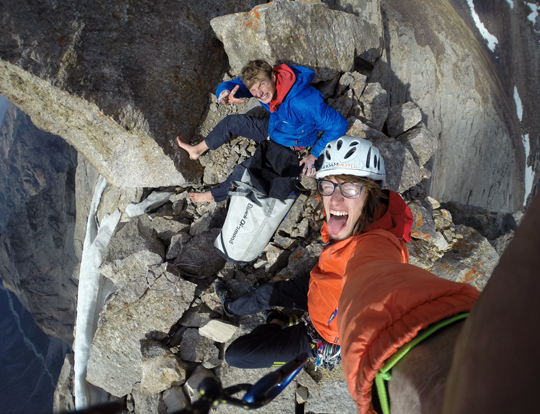
Following topos in French and Russian nearly 20 years before, Doug Byerly and Jimmy Surette, who were traveling with Steph Davis, were led to similar troubles. The pair rappelled from Ak-Su’s 4240-meter Russian Tower at the insistence of their topo, despite their own serious doubts. They set 15 anchors, “leaving most of their climbing gear,” Davis writes in High Infatuation. “Our topos…with vague line drawings, mainly served to lead us astray.”
The Italians ascended Russian Tower via Perestroika Crack (VI 5.12b), after having made quick work of the Petit Tour Rousse’s French Route (5.11b, 280m). Their ascents were followed by five days of bad weather, and Schiera claimed, “we were satisfied. But the flame rekindled on the last day.” He then set off alone up the Central Pyramid, authoring a 300-meter slab climb with two small roofs in three hours. He named his route La Bolla and graded it 5.10d.
Prior to the Italians’ departure, Schiera stated that the two were in search of “the perfect line.” Some three weeks later, with two probable first ascents under their belts, the team returned to their camp, “finally relaxed.”
